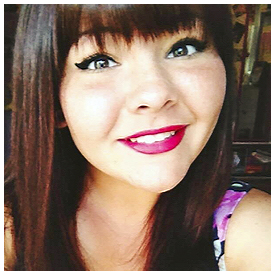
Autumn Soto has visited Flagler College twice before, Historic City News learned last week, but this time, she viewed it through a lens that was both unfamiliar and intriguing.
The high school student, from Belleview, was one of thirty who participated in the college’s week-long humanities seminar last week titled “Pirates, Protest and Preservation: Exploring the Stories of St. Augustine”.
“The humanities is in our everyday life. That’s the kind of things we’re learning in our English class,” Soto said in-between bites of chocolate mousse in the college’s dining hall during lunch. “You can use the setting around you to create a story. When you look at paintings and architecture, humanities is there.”
The seminar was funded by a $20,000 grant from the Florida Humanities Council. Its purpose was to offer high school students a preview of college life and to explore the nation’s oldest city through History, Literature, Women’s Studies, English, Latin American Studies and Communication. Students also experienced the field of Natural Sciences, with a coastal tour of the town’s reported discovery site.
Jay Szczepanski, an English instructor, led the week-long seminar, along with seven other Flagler faculty.
“The seminar provided students an opportunity to see how learning in college differs from learning in high school: It’s more immersive, and when that’s true, the learning is consequently much deeper,” he said. “Students were exposed to a St. Augustine that many had not encountered in history books. We were able to demonstrate that humanities-based inquiry is a powerful tool in man’s desire to understand himself and his world.”
As part of the experience, students explored the various narratives created about St. Augustine by visiting the national monument Castillo de San Marcos, Hospital Creek, the area’s coquina quarry (from which many public and private buildings were constructed) and Flagler’s former Hotel Ponce de Leon. They engaged in lively discussions in classrooms and roundtables and presented “their” St. Augustine story to their peers and parents, in the larger context of the stories they witnessed around them.
“The most rewarding part of the experience for me was seeing the students engage ravenously with the class sessions and field experiences,” Szczepanski said. “I was pleased to see that we had assembled a curriculum that was coherent, while at the same time being resonant with students and their interests.”
For Soto, the seminar hit home: she hopes to be an English professor someday.
“It’s great to hear people encourage you to study the humanities,” she said. “I love it here at Flagler. The classes are more discussion-based and the professors are open-minded.”
The seminar’s curriculum was developed collaboratively with participating Flagler faculty, including Szczepanski; Alexandra Asbille, Adjunct Professor of Women’s Studies; Kimberly Bradley Barzso, Assistant Professor of Creative Writing; Jessica Howell, Assistant Professor of History; Maria Jose Maguire, Assistant Professor of Spanish and Latin American Studies; Ed McGinley, Assistant Professor of Natural Sciences; Mark Huelsbeck, Assistant Professor of Communication and Documentary Production; and Kristine Warrenburg-Rome, Associate Professor of Rhetoric and Communication.
Funds for the seminar were provided by the Florida Humanities Council through a grant from the National Endowment for the Humanities (NEH). Flagler College was one of three institutions to receive the monies, which helped pay for costs associated with faculty/staff, supplies, meals and student field trips; the University of Florida and Eckerd College were the other recipients.
Discover more from HISTORIC CITY NEWS
Subscribe to get the latest posts sent to your email.




